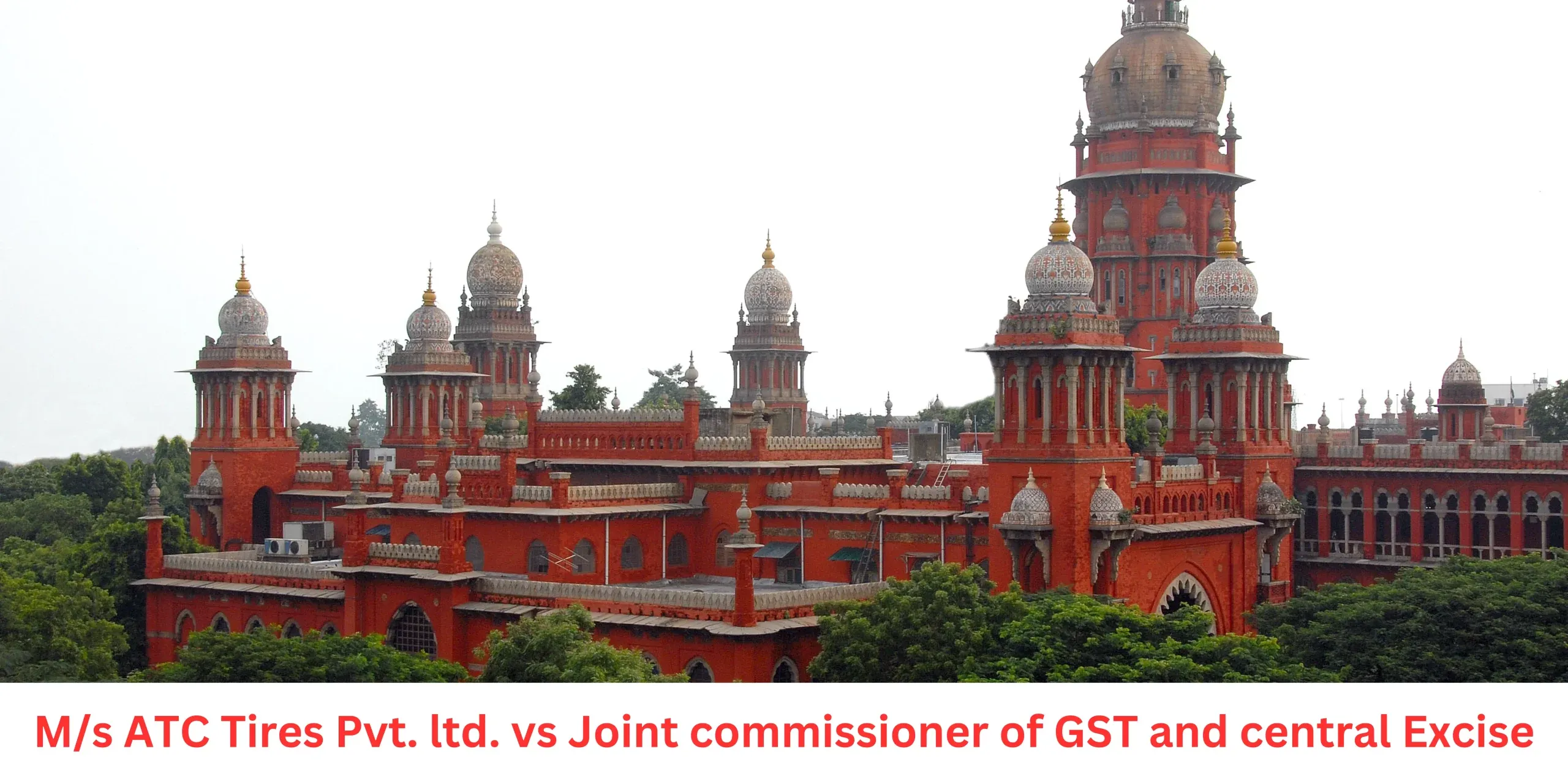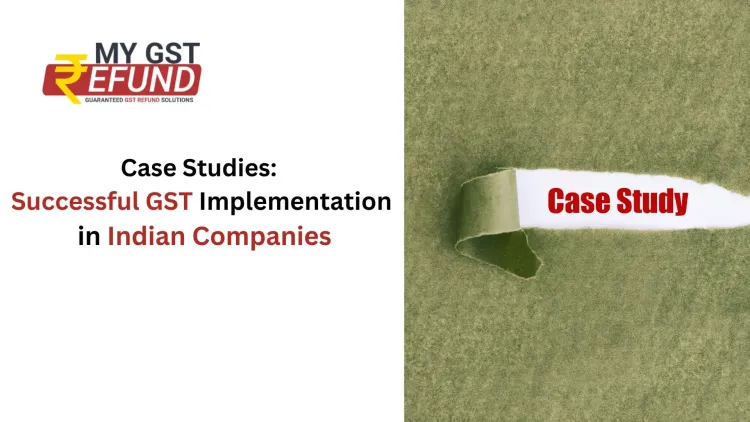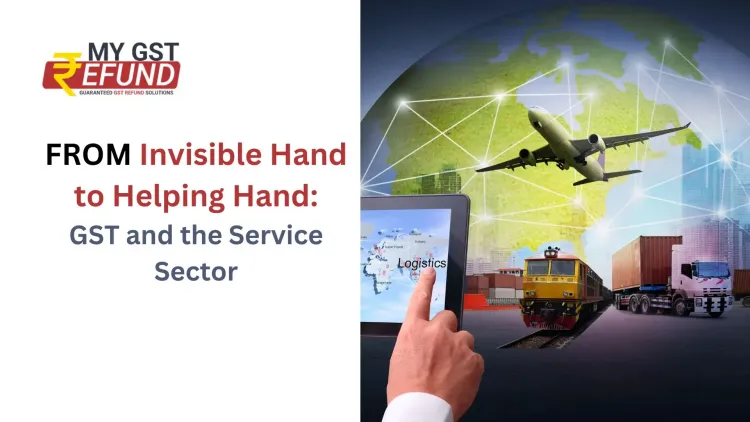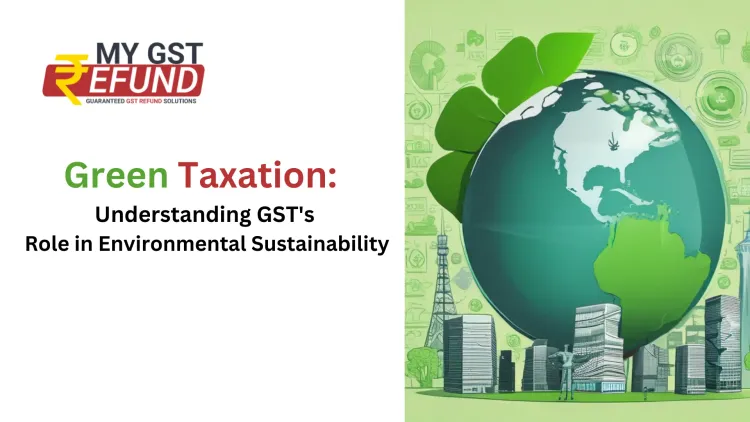Decode the Madras HC Judgement on the case of M/s ATC Tires Pvt. ltd. vs Joint commissioner of GST and central Excise.
Published on: Fri Feb 17 2023
Facts of the case
The petitioner has two production facilities and a head office in India. The Special Economic Zone Unit (SEZ), located in Gangaikondan Village, Tirunelveli District, is one of the petitioner’s units and the focus of the aforementioned writ petition.
In accordance with Section 2(61) of the CGST Act, 2017, the petitioner’s head office in Mumbai acquired several categories of common services, and the proportional credit was transferred to the petitioner’s SEZ unit.
The petitioner was entitled to a refund of the tax paid on input and input services under Section 16(3)(i) of the IGST Act because exports produced from its SEZ unit were “Zero-rated supplies” under the definition of Section 2(23) of the IGST Act.
To get a refund of unused IGST (which was allocated by its ISD) related to zero-rated supply, the SEZ unit submitted an application in Form GST RFD-01A.
In light of the provisions of section 54 of the CGST Act read with Rule 89 of the CGST Rules, which states that only a supplier of goods or services, and not the recipient of the goods or services, can file the refund application for supplies made to an SEZ unit, the department rejected the said refund application, and the rejection was upheld by the Joint Commissioner (Appeals).
Plea of the petitioner
Being aggrieved by the aforementioned orders, the petitioner has filed this writ petition before the Hon’ble High Court and the Petitioner contended that the entire scheme of GST does not restrict any distribution of common credit by an ISD to an SEZ unit and on a conjoint reading of section 16 of the IGST Act, section 54 of the CGST Act and Rule 89 of the CGST Rules, 2017, the Petitioner is entitled to get the refund of unutilized ITC lying in the Electronic Credit Ledger.
Observation by the court
The court observed that the supplier of such common services to the petitioner’s Head office could not have claimed any refund either under 16(3)(b) of the IGST Act, 2017 as such a supply did not qualify as a “zero-rated supply”. Therefore, there is no question of the supplier claiming a refund under Section 16(3)(a) or (b) of the IGST Act, 2017 or section 54(3) of CGST Act r/w rule 89 of CGST Rules.
Court also observed that once the supplies qualified as zero-rated supplies, a refund in terms of section 16(3)(a) cannot be denied. Sub-section (3) and (10) complement section 16 of the IGST Act, 2017.
The court stated that the purpose of granting a refund on zero-rated supply is to ensure that the exports are competitive in the international market and such transactions are not burdened with taxes.
Section 54 of the CGST Act allows the refund and includes a refund in case of zero-rated supplies without payment of tax. Proviso to section 54(3) allows a refund of unutilised ITC in said case and there is no bar in rule 89(1) of the CGST Rules, 2017 for a refund of unutilised ITC.
Analysis
To guarantee that exports are competitive on the global market and that such transactions are not taxed, refunds on zero-rated supplies are given.
According to Section 2 (23) and Section 16 of the IGST Act of 2017, the export by the petitioner from its SEZ unit in Tirunelveli is a zero-rated supply. It is impossible to dispute a refund under Section 16(3)(a) of the IGST Act, 2017 after it has been determined that the supply was zero-rated. The Central Goods and Services Tax Act of 2017’s Subsections (3) and (10) of Section 54 complete Section 16 of the IGST of 2017.
The Central Goods and Services Tax Act of 2017’s Section 54 permits tax refunds, including those for zero-rated supplies made without paying tax. The Central Goods and Services Tax Act of 2017’s proviso to Section 54 (3) permits reimbursement of unused input tax credits for zero-rated supplies produced without paying tax.
If the provider of goods or services, or both, requests a drawback about the central tax or a refund of the integrated tax paid on such suppliers, no input tax credit return is permitted. This is obviously not the case in this instance.
The proviso to Section 54(2) of the Act clearly includes the export of the petitioners as being within this category. Rule 89 (1) of the Central Goods and Service Tax Rules, 2017, is only exempted by the Proviso to Rule 89(1). The Central Goods and Service Tax Rules, 2017, Rule 89 (1), states that refunding an unused input tax credit is not prohibited.
As was already noted, one of the main goals of issuing this refund is to encourage exports and lower the tax burden to increase the exports’ competitiveness in global markets.
Ruling
The Hon’ble High Court in the current case determined that the impugned judgment made by the authorities rejecting the petitioner’s advantage of a refund of unused input tax credits from zero-rated goods had no basis. As a result, the petition has been granted, together with the aforementioned remarks and any subsequent remedy.
Are you Looking for GST Refund Service? MYGST REFUND offers GST refunds on business, GST Refund for exporters , TCS And TDS refund, Refund under Inverted Duty Structure, GST Notices & Technical Replies and many more if your GST application is rejected. Get in touch with us today.
Related Posts




